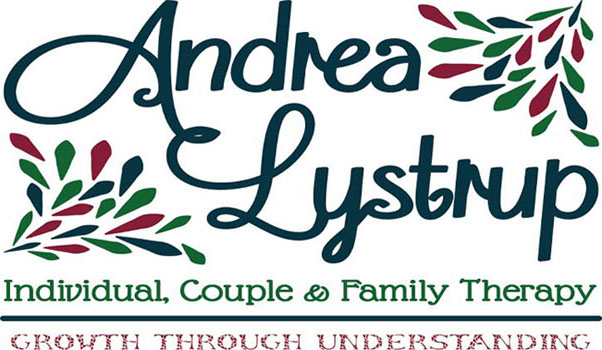Forgiveness for Dummies
Forgiveness for Dummies
Is there  someone in your life who has hurt you, but you can’t seem to get over it? At some point everyone has experienced the lingering bitterness that comes when we don’t forgive others. Bitterness is like having a ball and chain strapped to your ankle. You might get used to it, but it still holds you back from experiencing peace, joy, and freedom. Forgiveness is the key to unlocking your shackles and living your life at its fullest. The problem is, concepts like forgiveness sound great, but it is difficult to know where to start. My forgiveness guide for dummies demystifies this process in 4 steps:
someone in your life who has hurt you, but you can’t seem to get over it? At some point everyone has experienced the lingering bitterness that comes when we don’t forgive others. Bitterness is like having a ball and chain strapped to your ankle. You might get used to it, but it still holds you back from experiencing peace, joy, and freedom. Forgiveness is the key to unlocking your shackles and living your life at its fullest. The problem is, concepts like forgiveness sound great, but it is difficult to know where to start. My forgiveness guide for dummies demystifies this process in 4 steps:
-
Step 1: Choose forgiveness as an option
- Take an honest look at yourself and decide if you are ready to forgive. Sometimes people want to withhold forgiveness because it gives them power. You might believe that forgiving someone means you condone the behavior that hurt you. Withholding forgiveness might make you believe you are giving others their just punishment. You might say to yourself: “If I forgive them, who is holding them responsible for the mess they caused?” The problem with this mindset is that you are only prolonging your hurt. You don’t have to be done with hurting to be ready to forgive, you just need to want to stop hurting. If this resonates with you, you might want to check out my article on accepting others.
-
Step 2: Express your feelings of hurt and anger in non-hurtful ways
- When you talk about your hurt, do you want someone to listen to you or do you want them to tune you out or lodge complaints your way? That’s a dumb question, of course you want to be listened to. Communicate in such a way that you don’t cause people to become defensive. Use I-feel statements to keep the focus on how things have affected you. This is the basic formula: I felt + (name feeling) + when (describe event). Try your hardest to leave the word “you” completely out of your communication. For example: I felt abandoned/lonely/sad when you came home from work and spent the evening on the computer. This allows others to reach out and comfort you, instead of pushing them away. Bonus tip: people respond better to vulnerable emotions than to angry ones. Examples of vulnerable emotions include: lonely, sad, abandoned, devalued, insecure, ashamed, jealous, scared, hopeless, humiliated, etc. Angry emotions are words like: mad, irritated, frustrated, aggravated, furious, bitter, exasperated, resentful, etc. Anger is a secondary emotion, which means you are probably feeling something underneath the anger, but anger is easier to identify. Try to identify your softer emotions, and communicate those ones first. For example, instead of saying “I’m frustrated when you don’t spend time with me”, try saying “I feel lonely when you don’t spend time with me.” If your desired outcome is getting to spend more time with someone, which statement do you think is more likely to bring that outcome about? For a more extensive review on how to do this, check out my article on communication.
-
Step 3: Recognize how YOU have contributed to the problems in your relationship
- To forgive, we need to stop throwing ourselves a pity party and justifying to ourselves why it’s okay to feel so hurt. We need to ask ourselves if we would rather be right or happy. I’m not saying that there were no injustices in your relationship, and that you are wrong to feel hurt. Those feelings of hurt are important because they can be the feelings that motivate you to change something about your relationship. At some point though, if you want the hurt to go away you have to do something about it. In any relationship there are 2 people that contribute to the relationship’s strengths and weaknesses. When you realize how you have contributed to your relationship problems, it is easier to understand the perspective of the person that hurt you. It is easier to forgive flaws in others when you realize that you have your own flaws that you would like to be forgiven of.
-
Step 4: Act like you’ve already forgiven them
- After completing steps 1-3, you might realize that you still have some lingering hard feelings. Here’s where the expression “practice makes perfect” comes into play. Think about how you would act towards someone if you have already forgiven them. You would probably show more affection, trust, expressions of appreciation, and encouragement. Sometimes the trick to finally achieving forgiveness is deciding to stop punishing others and start acting like you’ve forgiven them. Emotions often follow our actions. Even if it starts with forcing yourself to act that way, soon you will find that the feelings of forgiveness, love, and trust follow.
Forgiveness is a difficult process. You might find that you thought you had worked through this process, but then something happens and those old hurt feelings resurface. That is okay. Every time you work through this process it will get a little bit easier. When you forgive others you will find an increase of peace in your life. Forgiveness doesn’t necessarily mean that all of the problems of the relationship are solved, but you will grow in your ability to handle them. Sometimes you might decide that the relationship is damaged beyond repair. If you decide to end a relationship, forgiveness is still important to restore your own internal peace.
If you need help at any point during this process consider giving relationship counseling a try. I can be reached at (702) 751-0540.
Facebook
Instagram

Thank you for this wonderful article. Sarah and I found it over Spring Break and it was really helpful, especially after a negative experience with a toxic Ex-Mormon employer over a year ago. I will try to apply these strategies.